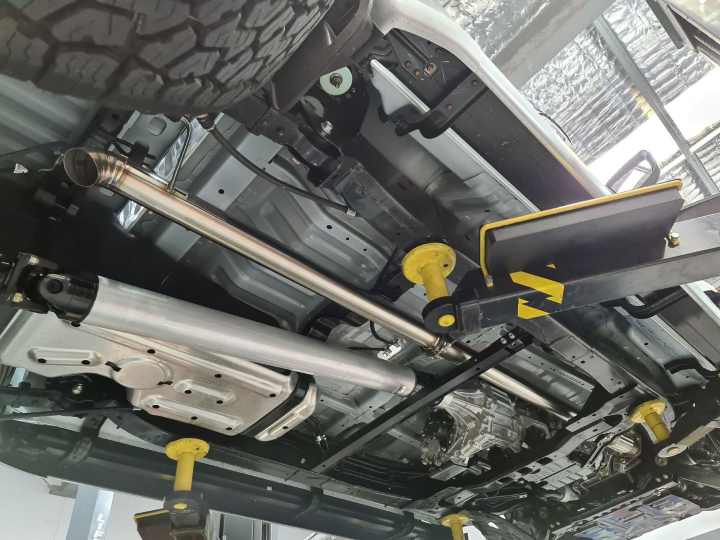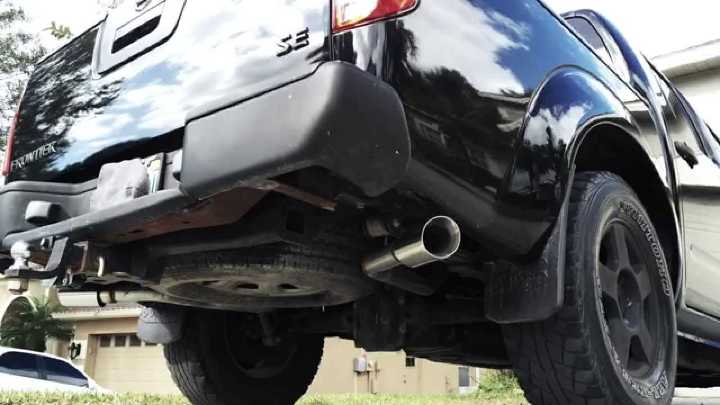Stainless steel is the best choice for high-performance exhaust systems, but it is a bit more expensive than aluminised steel. However, on a race car, where weight can be a factor, stainless steel exhausts are actually lighter than their aluminised counterparts. Aluminised steel is also an acceptable material for performance exhaust systems, but it’s not as durable as stainless. Aluminised steel has a protective layer of aluminium alloy that protects the steel from rusting and corrosion. This protective layer will wear away over time, however.
Why a Quality Exhaust System Is a Worthwhile Investment for Your Car
A quality exhaust system is a worthwhile investment for your car. It will improve your vehicle’s performance and increase fuel efficiency, along with giving the engine a much better sound. An exhaust system is made up of three key parts: the head pipe, mid-pipe and muffler. The head pipe connects to the engine and carries the emissions through the rest of the exhaust system. The mid-pipe carries the emissions from your head pipe to your muffler, which cleans out any remaining emissions causing harm to the environment.
Choosing the Best Exhaust System
Stainless steel exhaust systems are less likely to corrode than those made of aluminised steel. In coastal areas, where salt can be a problem, stainless steel is a good choice. However, you may pay up to twice as much for a stainless system as for one made of aluminised steel.
Mild steel exhaust systems are less expensive than either stainless- or aluminised-steel systems. The milder steel corrodes more easily than the others, but it’s still common in some areas. You may not have much choice if you need a muffler or other part quickly. Mild steel parts are OK in mild climates and may be a good choice if you’re on a tight budget and don’t expect the system to last very long.
Aluminised steel exhaust systems are more resistant to corrosion than mild steel, but will rust eventually. In slightly damp or coastal areas, they’re probably your best bet. They’re also the most common and widely available type of replacement exhaust on today’s market.

Is Stainless Steel or Mild Steel Better for Car Exhaust Systems?
Stainless steel exhausts are stronger than mild steel alternatives. This is because stainless steel has been alloyed with other elements—notably chromium and nickel—to make it more resistant to corrosion. The downside is that it’s not as strong, so for cars that are used for racing or other applications where strength is at a premium, mild steel is often preferable.
Stainless steel exhausts resist heat better than mild steel. Mild steel has a relatively low melting point, and this can cause problems in extreme conditions. At the other end of the scale, stainless steel can withstand much higher temperatures without changing its state. The cost of a stainless steel exhaust is generally higher than that of a mild steel system. This is due to the additional work required to manufacture these components and the prices of the materials themselves.
Stainless Steel Types
304L stainless steel: The most common type of stainless steel used in exhaust systems, this material is much stronger than mild steel and prevents rust. It’s also quite malleable, which means it can be bent into many shapes without cracking or breaking. This makes it the ideal material for exhaust components such as pipes and silencers. However, 304L has one major drawback: it is susceptible to getting blued if exposed to excessive heat over a long period of time.
409 stainless steel: This is the most commonly used grade of stainless steel for car exhausts. It has relatively low corrosion resistance, but its malleability means it’s easy to mould into complicated shapes. 409 stainless can be welded easily and will deal with high temperatures well.

Aluminised Steel Exhaust Systems: A Great Choice if You Want to Save Money
The major benefit of an aluminised steel exhaust system is that it is far less susceptible to corrosion than a standard steel system. This means it can withstand harsher conditions such as extreme heat, bad weather and poor road conditions. While rust can make a hole in a mild steel system in just two years, this won’t happen in an aluminised steel exhaust system for at least 10 years.
Because of this, the exhausts are ideal for older cars that have spent most of their lives in harsh conditions. Aluminised steel exhausts cost approximately half the price of stainless steel systems and are not much more expensive than mild steel systems. Some manufacturers supply these systems with a 10-year warranty, which makes them an excellent choice if you want to keep your car on the road for longer but don’t want to pay over the odds for a stainless steel system.
Aluminised Steel Types
There are two types of aluminised steel exhaust systems available in the market today. The first type is called a standard aluminised steel exhaust system, while the second one is known as a performance aluminised steel exhaust system. These two types of systems have different specifications and functionality, but they both perform their job well when it comes to keeping your vehicle’s engine running smoothly and efficiently for years to come.